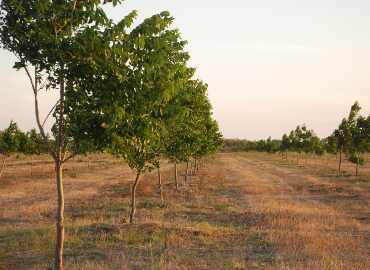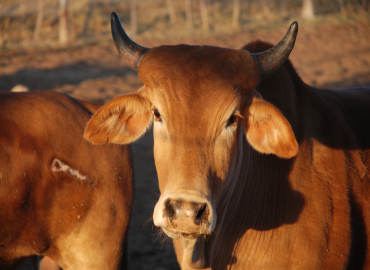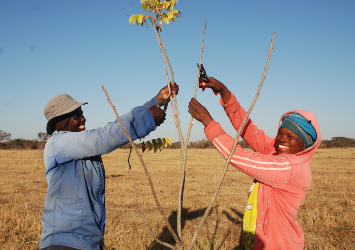Balu
Pecan & Livestock
The
Pecan Story
Tracing the Rich History & Growing Demand for Pecans
The
Balu Vision
Strong International Pecan Brand
Balu
Farming
Pecan Orchard and Nursery
Lucerne
Cattle
Community
Engagements
Offering Employment and Supporting Local Farmers
Meet
Our Team
Effective Collaboration for Successful Achievements
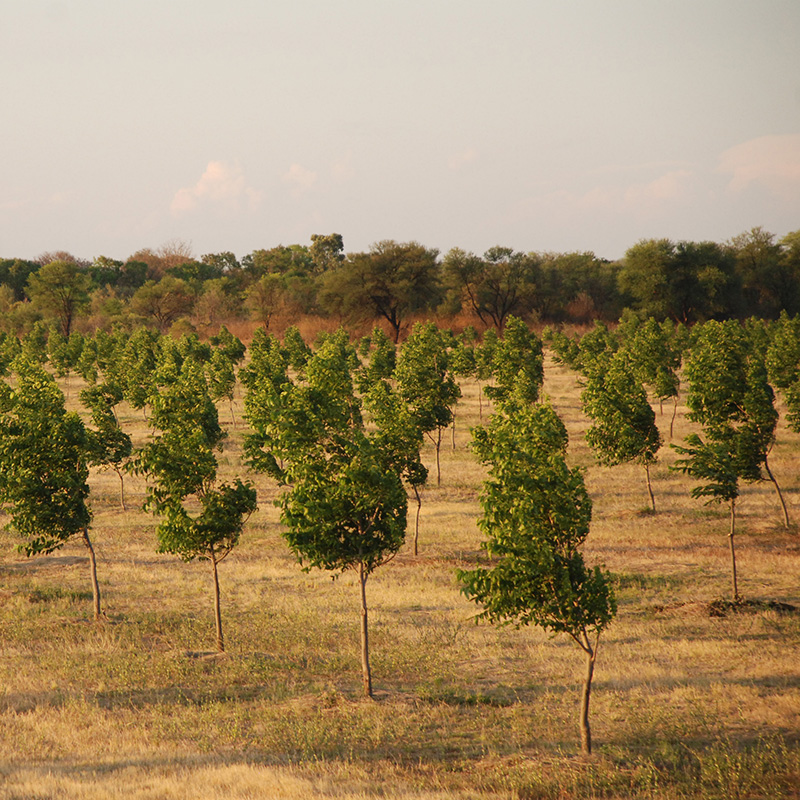

Welcome to Balu
Balu has established large scale pecan orchards.
With its beginnings in January 2018, the project that Balu Pecan & Livestock Company has embarked upon involves the long-term development and realisation of 3,500 hectares of land, with the focus being on the establishment of a large pecan orchard for the production of pecan nuts.
About Balu Pecan
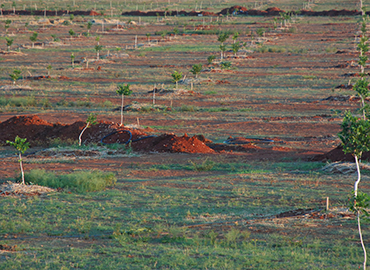
10,000 trees planted
in 2018
Balu is a privately-owned company (Kalimba Investments PVT Ltd T/A Balu Pecan and Livestock) whose shareholders have committed the initial capital to the project and successfully planted 10000 pecan trees in 2018.
48000 trees planted
to date
2018
Phase 1
10000 trees on 100ha
2019
Phase 2
13000 trees on 100ha
2020
Phase 3
10500 trees on 80ha
2020
Kezi
10000 trees on 75ha
2021
Phase 4
4000 trees on 20ha
Concurrent
projects
Whilst the primary focus is on the production of pecans, the project’s cashflows are being augmented with cattle and lucerne which supplement the working capital and funding requirements.
Establishment, Location,
Estate & Farm Land.
Balu Estate Establishment
Balu Estate was originally established in the late 1960’s as a conglomeration of Seaborough, Balu, Pampoenpoort and Kennebec properties. Originally owned by the Norvall brothers, the properties were sold to the government in the early 1980s.
Location
The estate is situated 34 km from Bulawayo’s city centre on the Victoria Falls road and 15km from Bulawayo International Airport. The estate has 4 management houses, 50 staff houses, a fully operative workshop as well as a functional airstrip. There is adequate energy & electricity infrastructure in place.
About The Estate
ARDA (Agriculture and Rural Development Authority) owns 3,556 ha Balu Estate. The farm has arable potential of 2,000 hectares and contains a dam in the North East section with a capacity of approximately 17 million cubic meters of water. The dam, known as Pampoenpoort Dam, was commissioned in 1970.
Farm Land
Average annual rainfall is 550mm, with minimum winter temperatures reaching -4C and maximum summer temperatures reaching 35C. The farms soils consist of a combination of black cotton, red clay/loam and sandy loams with lesser clay content. The well drained soils along with the cold winters and hot summer days and abundant stored water are ideal fundamental attributes for a large-scale pecan agri-business.

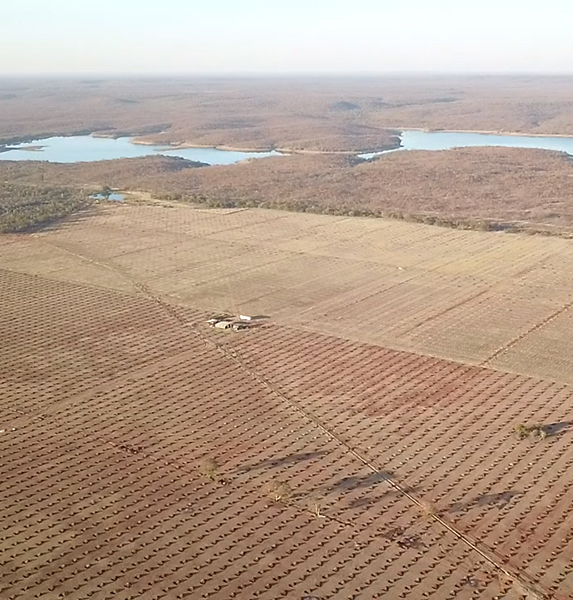

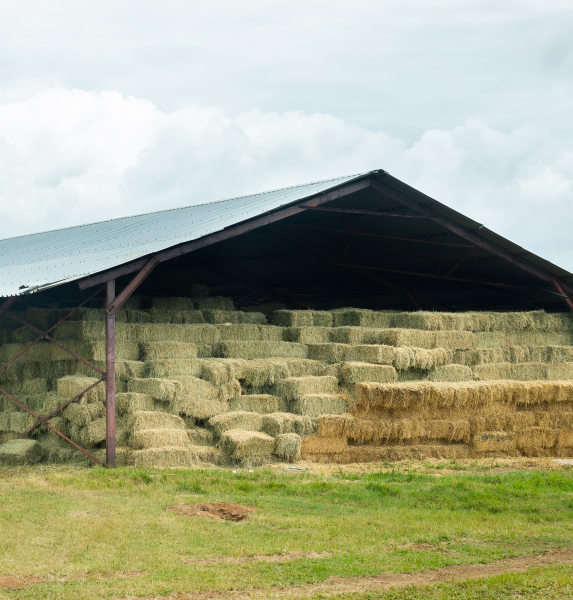
The Balu Vision

September 2018
Phase 1 – 100ha planted with 10000 Pecan trees
November 2018
Established a pecan tree nursery at Balu

September 2019
Phase 2 – 100ha planted with 13000 Pecan trees

December 2019
50 hectares grazing under pivot and establishment of Cattle Business Centre
June 2020
40ha lucerne planted under pivot
September 2020
Phase 3 – 75ha planted with 10500 Pecan trees

September 2020
Southern Pecan 150ha planted with 20000 Pecan trees on Valley Irrigation Scheme
September 2021
Phase 4 – 20ha planted with 4000 Pecan trees

July 2022
50 and 34 ha lucerne planted under pivot
August 2023
34 hectares of lucerne
Hill Pivot 3

January 2024
Commencement Balu Botswana
The Pecan Story
The history of pecans can be traced back to the 16th century. The only major tree nut that grows naturally in North America, the pecan is considered one of the most valuable North American nut species. The name “pecan” is a Native American word of Algonquin origin that was used to describe “all nuts requiring a stone to crack.”
Originating in central and eastern North America and the river valleys of Mexico, pecans were widely used by pre-colonial residents. Pecans were favoured because they were accessible to waterways, easier to shell than other North American nut species and of course, for their great taste. Because wild pecans were readily available, many Native American tribes in the U.S. and Mexico used the wild pecan as a major food source during autumn.
Over the last 30 years the demand for pecans and pecan products has increased in line with a growing global middle class and populaces that are increasingly health conscience. The lead time to commercial production is long (6 years from planting) and supply has generally lagged. However, production is estimated to double in the upcoming years with new and extensive orchards coming into fruit. The market demand is forecasted to grow by 400% over the same time span with Southern African production having an added advantage of being in season for peak demand periods whence trees in the Northern hemisphere are dormant.
80% of the pecans that are supplied to the global pecan industry originate from the United States. In most seasons, up to 140,000 metric tons are produced.
Pecan prices have risen steadily along with increased demand from consumers for healthy alternative food. In recent years China has emerged as one of the largest new markets for Pecans.
Valley Irrigation Scheme
Southern Pecan.
In 2020 Southern Pecan Private Limited (SP) embarked on establishing a pecan orchard at Valley Irrigation Scheme, approximately 10km west of Kezi. Valley Irrigation Scheme is a turn key enterprise consisting of a dam on a tributary of the Thuli river, a pumphouse 6km downstream, and a holding storage pond with another large pumphouse. This supplies water to 320 ha of irrigation in 4 blocks.
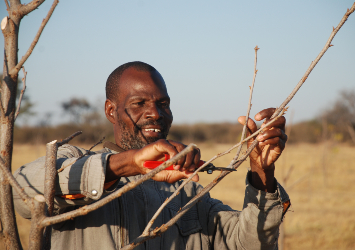

Beneficiary
Involvement
The 200 families that are beneficiaries of the scheme approached the now shareholders of SP in 2020 for assistance in development and management of the scheme.
A 40-year Use of Land agreement was signed and endorsed by the Government of Zimbabwe. During this period, beneficiaries receive project royalties and will eventually own the orchards, starting with guaranteed rental in the form of food.
Empowering the Community
Once the orchards are productive, beneficiaries have an option of a cash royalty payment based on turnover, or the existing payment in the form of food.
Pecans are a legacy crop, with the trees living for many years, so the community will be uplifted significantly by the establishment of the orchards, besides enjoying the immediate benefits of employment and receipt of rentals from SP.
Southern Pecan Initiatives
In 2020, SP planted 20 000 pecan trees on 150ha, and rehabilitated a further 30ha of irrigation, strictly for the use of the beneficiaries of the scheme.
In 2021, SP recommissioned 90 ha of land under two pivots for cropping purposes, for the benefit of the company, growing a rotation of soya, wheat and maize. The project operating expenses are now funded by the profit generated from these crops.
Zimbabwe a Global Player in the International Pecan Arena
Pecan Industry Growth and Development.
Zimbabwe Pecan Production Advantage
Zimbabwe’s climate, soils and excellent water resources make it the ideal place to grow pecan trees in Southern Africa. Certain areas of Zimbabwe have all-natural attributes that are necessary for commercial pecan production.
Lucrative Source For Sustainable Earnings
Pecan trees can contribute significantly to the annual sustainable foreign exchange earnings to Zimbabwe.
Developing Profitable Pecan Industry
The Pecan industry is well developed in South Africa and the concept has been proved in Zimbabwe over the last several decades. The oldest Zimbabwean commercial pecan orchards were planted in 1969. They are still producing profitably.
Pecan Industry Expansion In Zimbabwe
The industry is poised for massive expansion in Zimbabwe on the back of increased uncertainty in South Africa around land rights and the superior growing conditions in Zimbabwe.
Boosting Agri-Exports with Pecans
The Zimbabwe Government has pursued partnerships with private sector in order to stimulate agricultural growth. The focus is on creating sustainable Agri-export businesses and pecans fits well in this model.
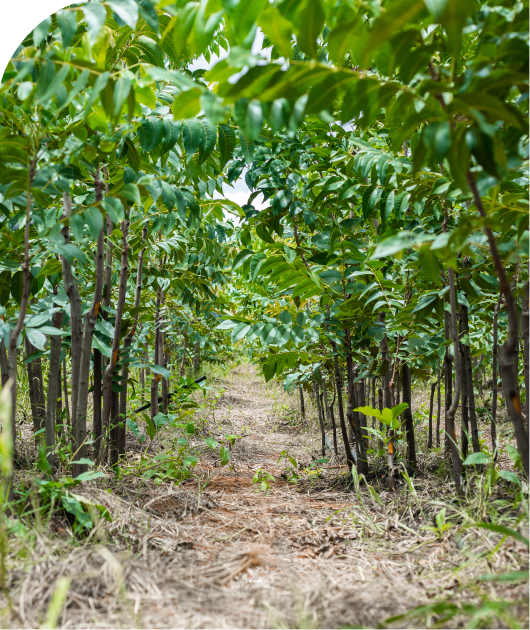
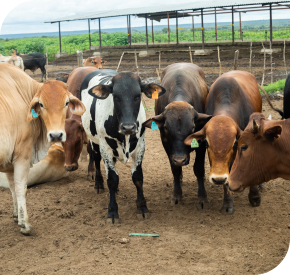
Our Projects
Balu Farming
Plant material has been procured from both local and South African nurseries. The main cultivars are Wichita, Navajo, Western Schley and Choctaw using Eukalinga root stock. Balu has developed its own nurseries using similar cultivars for further expansion projects.
Balu has 124 hectares of lucerne under pivot, looking to expand to an addition 76 hectares. The lucerne is either for sale or incorporated into the Balu Feedlot.
Balu Pecan and Livestock Company are in the process of developing a cattle enterprise. This will include a nucleus breeder herd that will be the core of a reproductive program. We intend to develop a reproductive center at Balu Estate and using technologies such as embryo transfer and in-vitro fertilization develop a cattle seed stock program that will be positioned to roll out enhanced genetics into the local community and potentially nationally and regionally.
We have developed a commercial feedlot programme with lucerne as the backbone of the cattle feed which will dovetail into the pasture under pivot that we have provided through SAT and the EU for the local farmer.
The above program we will enhance by providing satellite livestock health centres in the region around Balu and deliver basic veterinary care and health management; this concept of this is to build a long standing relationship with local producers to enhance the quality and health of their cattle and provide for a better quality and valued product.
The Role of ARDA
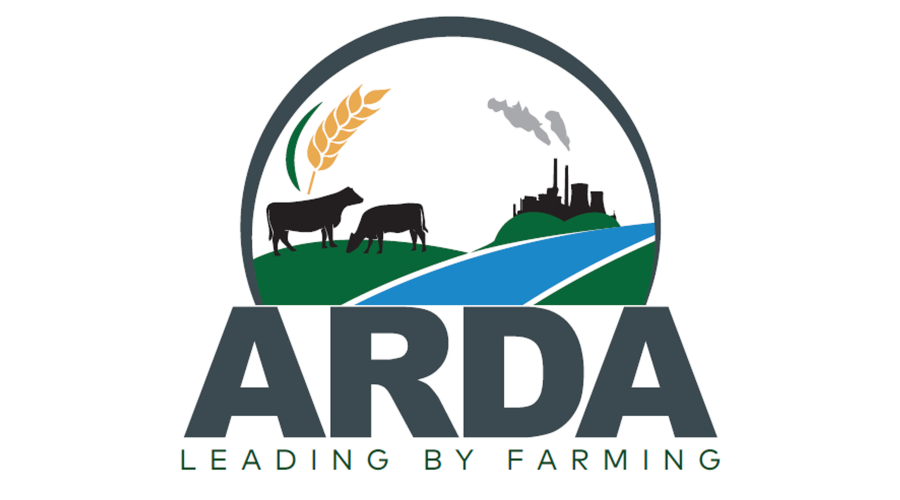
Agricultural and Rural Development Authority (ARDA) is a Zimbabwean parastatal whose primary focus is National food security, as well as being a driver of Zimbabwean agriculture-lead economic growth and development.
The Authority is divided into two main categories, namely Commercial/Business Operations and Rural Development. Commercial Operations involve production of various crops and livestock at 21 different ARDA Estates (measuring 124254 hectares). The Estates operate as Strategic Business Units (SBU). This arrangement allows Estates to access loans individually on the strength on their respective Balance Sheets.
Since 2009 ARDA adopted a strategy of PPP (Private, Public, Partnerships) with the intention of unlocking asset values and maximising output on the estates. This strategy was further consolidated in 2015 with Governments ZIMASSET policy.
Partnering to Maximise Asset Potential
ARDA have signed a long-term arrangement of land use with Kalimba Investments PVT Ltd to develop and maximise the full potential of the asset.
Revitalising Zimbabwe’s Economy
There is a focus on investor-driven initiatives that will deliver to all parties involved working
closely with the Zimbabwean
Investment Centre.
Meet Our Team
Executive

Philip Dumont de Chassart
CEO

Nicholas Ncube
Executive Chair
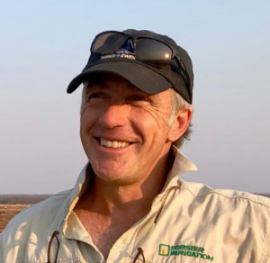
Jeremy Hubert
Managing Director

Michael Manyaya Zihumo
Financial Director

Benedict Mbanga
Member
Meet Our Team
Management

Jeremy Hubert
Managing Director
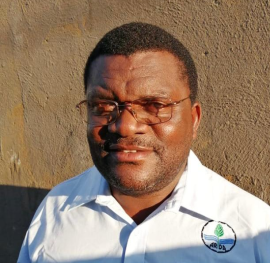
Ndodana Ncube
Community Engagement
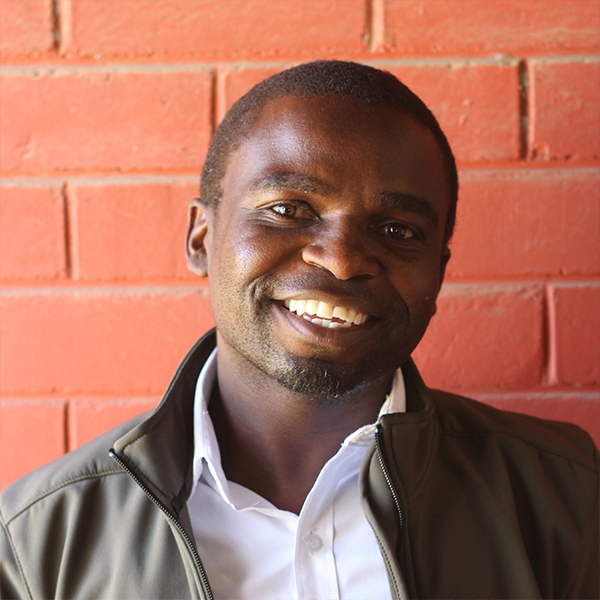
Mpumelelo Ncube
Accountant

Joshua Van Leuween
Farm Manager
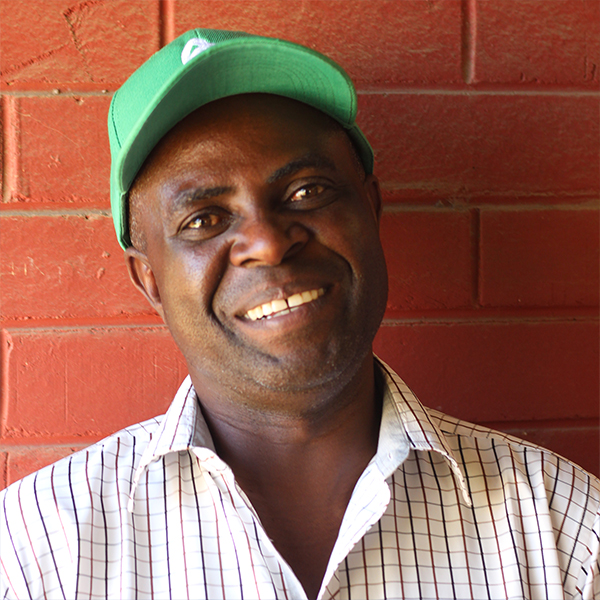
Simbarashe Gapara
Valley Farm Manager
Community Engagements.
1. Balu Cattle Business Center 2019
Agreement with the Beef Enterprise Strengthening and Transformation Program (BEST). Established a 50ha grazing pivot for local small farmer use and benefit.
2. Small Scale Balu Pecan Outgrowers
Identifying suitable centers and communities where small intensive pecan plantations can be established
3. Employment at Balu Pecan and Livestock
Balu currently employing 120 people from surrounding community and 80 people at the Kezi operation. Approximately 50% of employees are women.
4. Community Projects
Building low-level bridge with weir for access to communities. Assisted building community clinic, equipping roads; drilled borehole for community.
5. Valley Irrigation Scheme
Kezi project with over 200 families as beneficiaries who will own project after rental period.
6. Planned Projects
Umguza weir & bridge, 2ha drip garden for 488 household beneficiaries; recommission dip tank at Gumtree.
Balu Pecan and Livestock Company (BPLC) has a policy of actively engaging with our local communities
Email Address
Location
Phone Number
Send Us A Message

